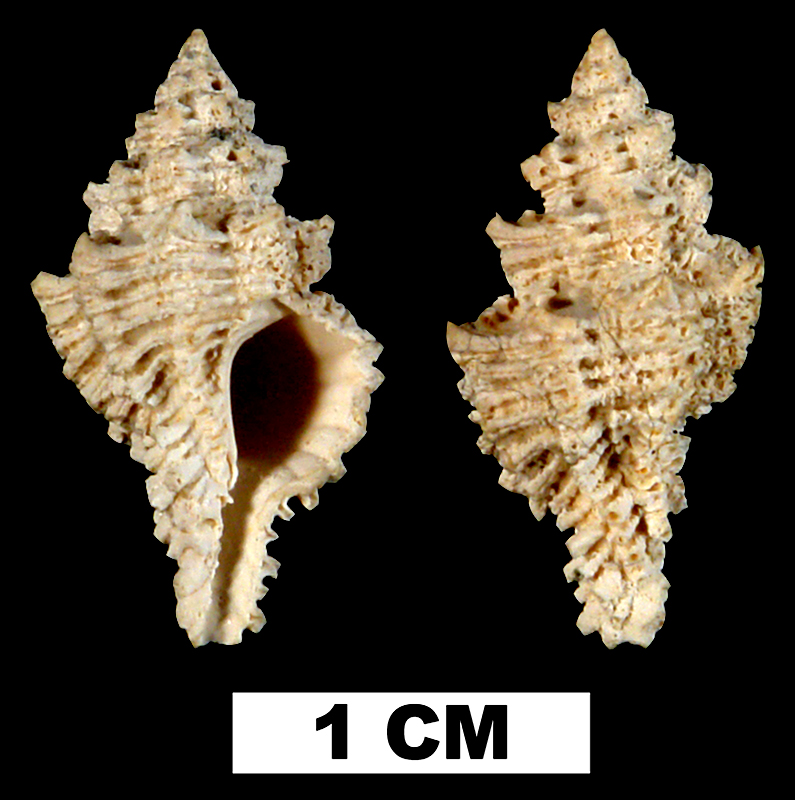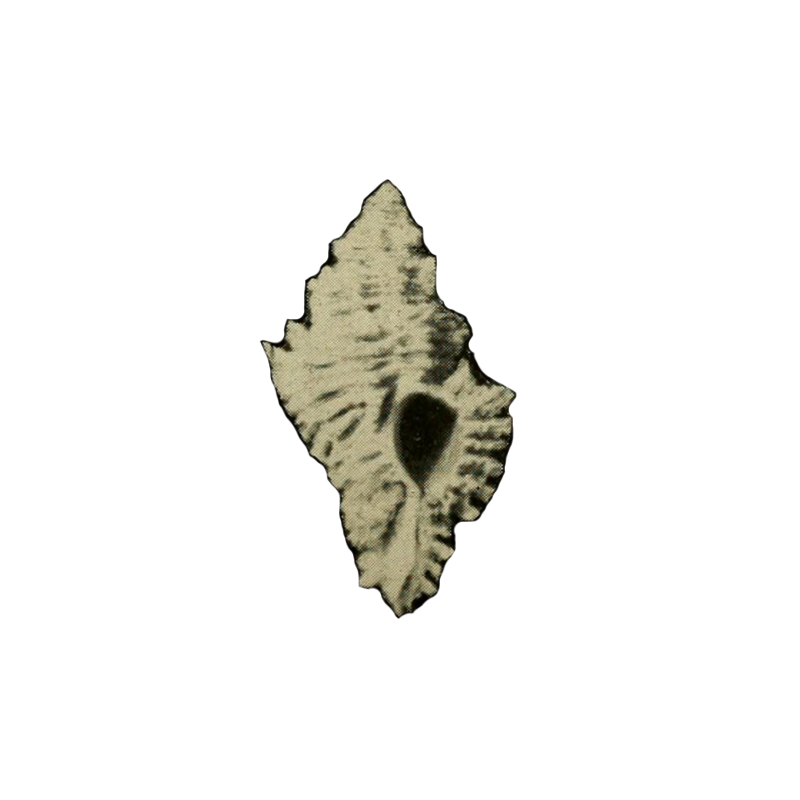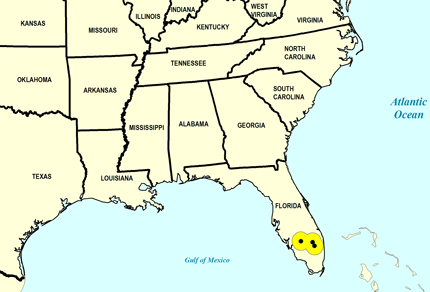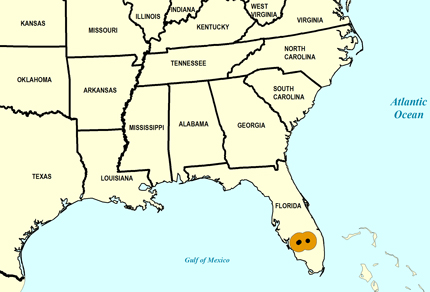
Favartia glypta
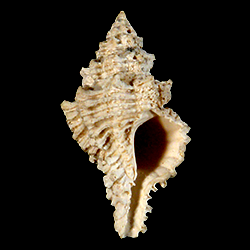
- Phylum: Mollusca
- Class: Gastropoda
- Order: Neogastropoda
- Family: Muricidae
- Genus: Favartia
- Species: Favartia glypta (Smith, M., 1938)
- Common Name: Carved murex
Geological Range
Early Pleistocene to Middle Pleistocene; Recent.
Paleogeographic Distribution
Southern Florida.
Remarks
For information on the modern distribution of the species, see Malacolog.
Original Description (from M. Smith, 1938, p. 89):
"Nucleus of holotype imperfect, whorls about seven; suture well impressed; spiral sculpture consisting upon the body whorl of about twelve rounded ribs, arranged arc shaped from axial rib to rib, often marked with a division line in the center, the major termination of the axial sculpture turned backward from the direction of growth, openings beneath away from the recurved points. The eight axial eminences are sharp and largely formed by foliated processes. Aperture small, oval in shape; canal slightly oblique, almost closed. Length of holotype 26 mm., in the author's collection.
From the young M. rufus, an abundant shell in the same beds, the new species differs in the more generous spire, the distinct shoulder, the recurved processes, smaller aperture and mature aspect. The extraordinary sculpture suggests certain Coralliophilas. PL 6, fig. 10. Pliocene, Clewiston, Florida."
To access this description in its original formatting through the Biodiversity Heritage Library, click here.
Synonymous with Murexiella glypta and Murex glyptus M. Smith, 1938 (original combination).
Stratigraphic Occurrences
- Middle Pleistocene
- Bermont Formation (S. FL)
- Early Pleistocene
- Caloosahatchee Formation (S. FL)
